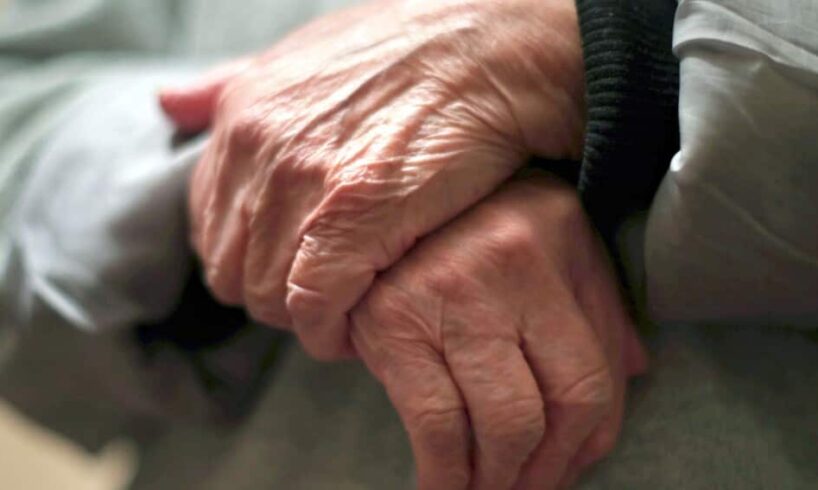
Once-in-a-generation aged care reforms have taken effect, promising to improve the quality of care for older Australians, but industry leaders have issued warnings about the challenges ahead.New rules under the Aged Care Act will now require some care recipients to pay more for support services in a bid to put the industry on a more even keel and improve the quality of care on offer.While clinical support such as nursing and physiotherapy will still be fully subsidised, services including showering will now have a fee associated with them.The overhaul will be grandfathered, meaning older Australians already in care will not be worse off.
The changes also include updated rights for older Australians around independence, privacy, safety and quality.
‘System is already stretched thin’
Home care provider Dovida, which supports more than 14,000 seniors, welcomed the long-awaited reforms but expressed concern the sector might not be ready for the proposed changes.
Chief Operating Officer Greg Bartley is particularly worried about the federal government’s commitment to reduce wait times to just three months by July 2027, a promise made during the introduction of the bill to parliament in 2024.
“We have to be realistic about what it will take to get there. Right now, the system is already stretched thin, and we think the government has not made the systemic changes needed to meet their own target,” he said.”Without urgent focus on infrastructure, workforce, and assessment capacity, the three-month target could quickly become another missed milestone for older Australians waiting to stay safely in their homes.”Bartley said the government’s ambition was supported, although it needed to be matched with action.
“The sector stands ready to help achieve the target, but we need the systems, people, and support to make it possible.”
‘I am needing some help for the first time in my life and we can’t get it’
The laws cover residential aged care and home care, and stem from the final report of the Royal Commission into Aged Care Quality and Safety, which was handed down in 2021.More tiers of home care will be introduced to ensure people’s packages are better matched to the support they need.Among those who could be affected by the changes are Lee and Andrew Hodgson. Until her mid-eighties, Lee was fit, healthy and engaged with the community through the Older Women’s Network.
“I was state president of Queensland for six years. I ran a branch in Gympie for 13 years,” she told SBS News.
But last year, aged 85, she underwent radiotherapy for a cancer affecting her nose, and this year she suffered a heart attack requiring several operations, from which she is still recovering.With her husband Andrew also suffering from chronic health conditions, she said, everyday tasks like cleaning the house, or even having a shower, have become difficult.The couple were first assessed for in-home support at the start of last year, before she fell ill.She was assessed again after her cancer treatment — and again recently.But she said the two hours a fortnight of cleaning services she eventually received are not enough, and even that support is irregular.
“You pay your taxes all your life. And when you get to this age here, I am needing some help for the first time in my life and we can’t get it,” she said.
Advocacy groups on alert
Older Persons Advocacy Network chief executive Craig Gear said the changes represent a new approach to aged care.”It does bring in improved quality standards, which the Royal Commission said was way needed into the aged care system. It also provides greater protections for older people through greater powers of the regulator,” he said. But he warned companies were changing their pricing for home care in response to the reforms, which could leave some people trying to enter care worse off.
Under the new system, clinical services such as nursing and physiotherapy will be covered by the government, but recipients will need to make co-payments for non-clinical services, at a rate determined by their income and assets.
For personal care such as showering, help with medication, transport, or home modifications, a full pensioner will pay 5 per cent of the cost of the services.Part pensioners and self-funded retirees could pay up to 50 per cent.”People coming in on a current package may have less purchasing power,” Gear said.Gear said while some people were pleased their rights were enshrined in legislation, there was also a period of uncertainty ahead.
“Some people are feeling confused about what this means,” he said.
The Greens voted against the bill when it passed through parliament in 2024, voicing concern over the financialisation of care.”Our parents and grandparents deserve to be looked after in their old age, not forced to choose between a shower each day and a meal,” Senator Penny Allman-Payne said.”Aged care should not be for profit.”Council on the Ageing chief executive Patricia Sparrow said some of the details would become clearer in coming days as the changes worked their way through the system.
“The changes are large, and people are trying to take them in,” she said.
LISTEN TO
How caring in language can prevent elderly falls
Aged Care Minister Sam Rae said the changes marked a shift for older Australians.”With these reforms, we are no longer just patching a broken system,” he said in a statement.”We are fulfilling a promise to deliver dignity, choice and respect to every person who has spent their life contributing to their community and our country.”The aged care sector will come under increasing pressure in the coming years as large numbers of baby boomers begin requiring more support, and questions remain about the capacity of the industry’s workforce to deliver the required care.
Source





